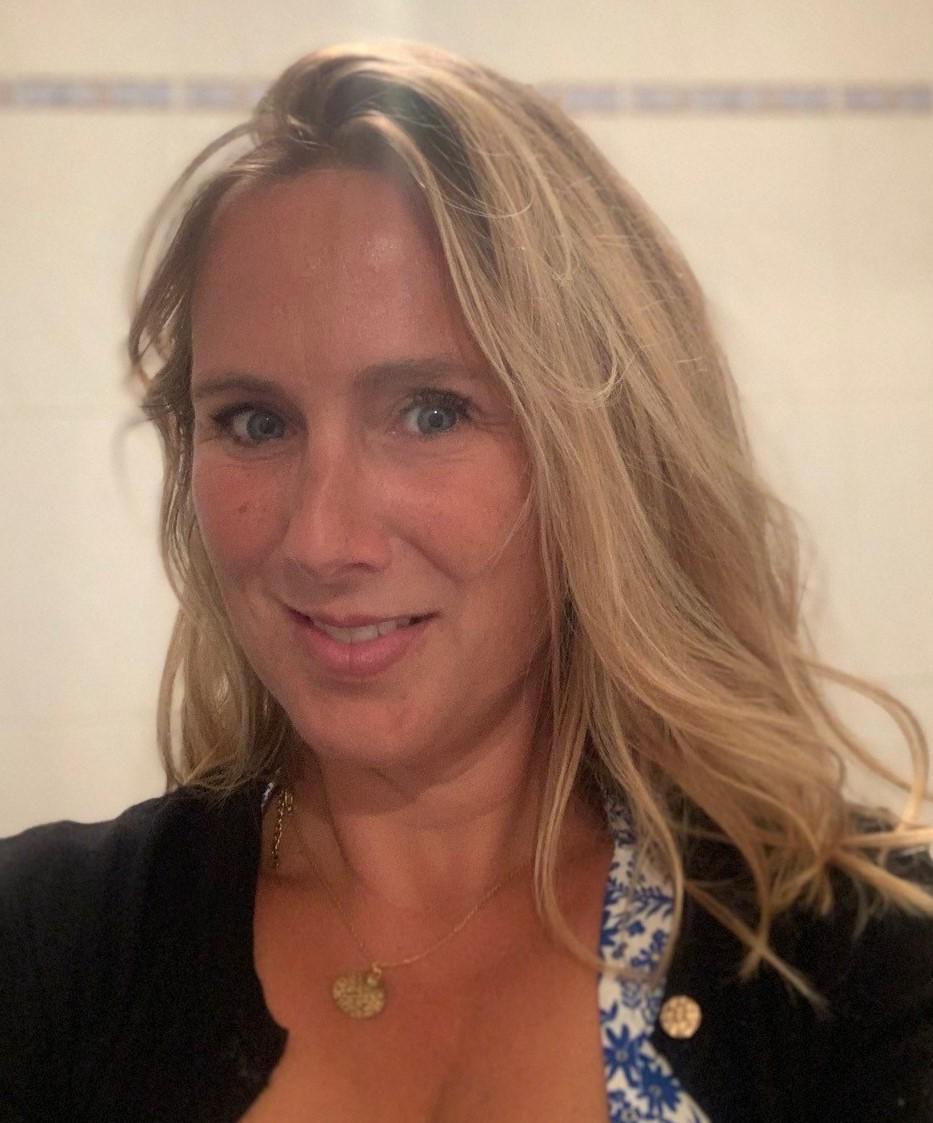How is the ABSolEU Consortium designed?
The ABSolEU project is led by Université Côte d’Azur and in particular ICN (the Nice Institute of Chemistry) and GREDEG (Research Group in Law, Economics and Management). The consortium brings together 11 additional partners, namely LEGO, BIC, Volvo Cars, TRINSEO, TNO, RI.SE, GALLOO Plastics, Swedish Institute of Standards, JOTNE, Prospex Institute and Universidade de Aveiro. Thus, it is implemented by a robust consortium that spans the entire ABS value chain, as it comprises 3 global – and iconic – brand owners, 2 RTOs, an ABS-producing company, a recycler, a traceability solutions company, a standardization institute and a company specialised in stakeholder engagement.
What is the core objective of the ABSolEU Consortium?
The ABSolEU consortium is seeking to lay the first bricks of a sustainable future for ABS plastics. The overarching ambition of ABSolEU is to revolutionise the current state of the art of ABS recycling. Concretely, ABSolEU will realize this ambition through a dual approach of demonstrating technological innovations for ABS recycling, while establishing a supportive framework for the diffusion of the innovative efforts of the project, with the aim of improving methods and standards for characterisation, traceability, and quality assurance of rABS products.
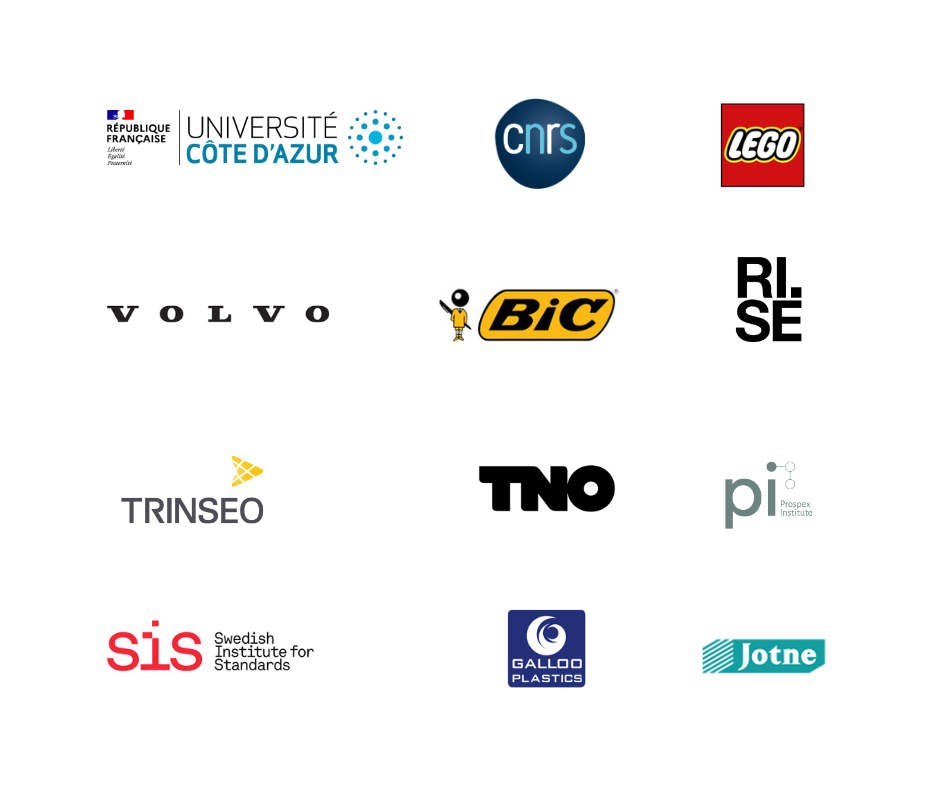
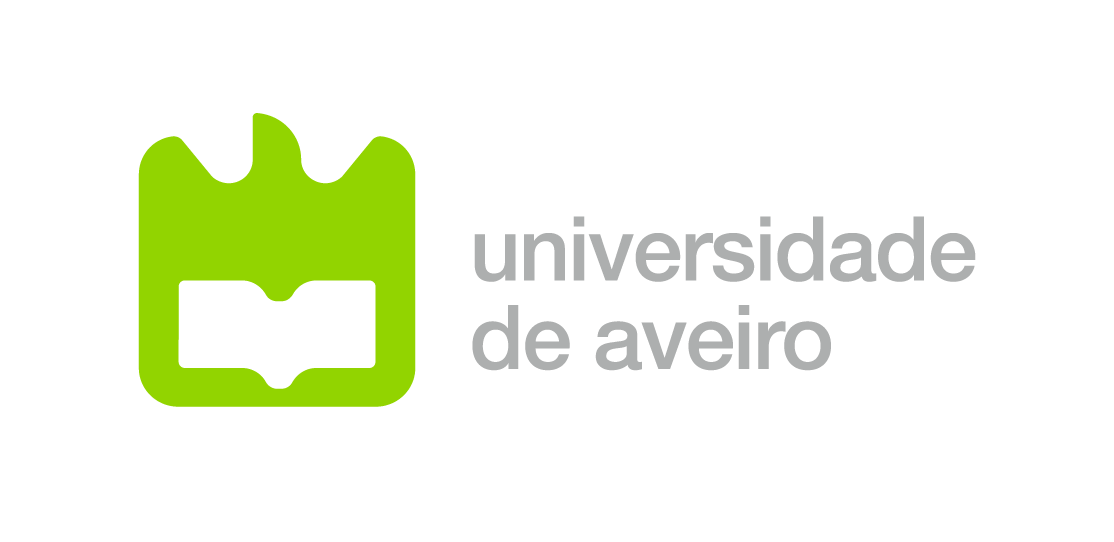
Geographic spread of the ABSolEU Consortium
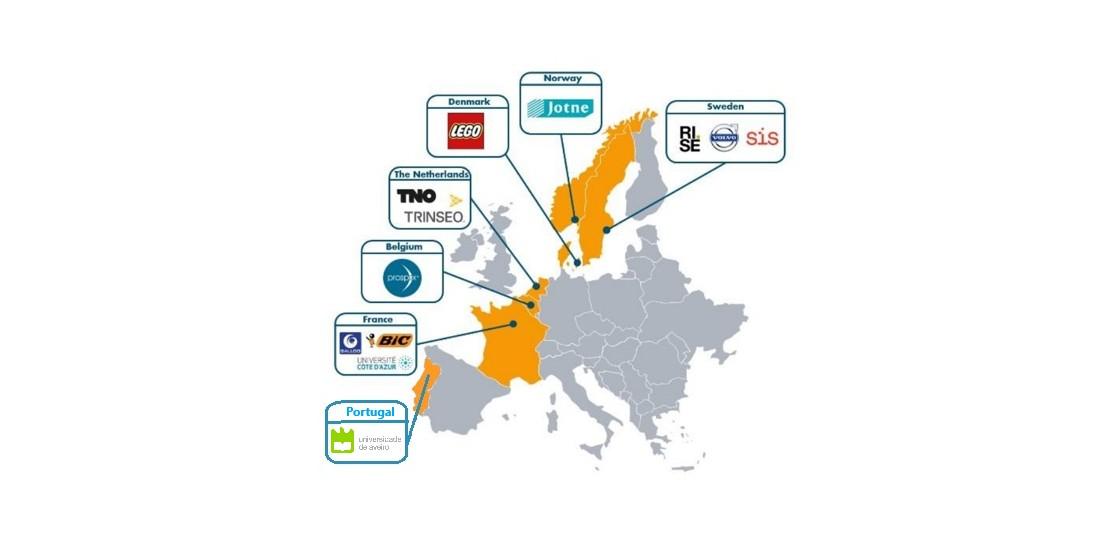
- Université Côte d'Azur
-
Université Côte d'Azur
Université Côte d'Azur has been an experimental university since 1 January 2020 replacing both the Université Nice Sophia Antipolis created in 1965 and the Communauté d'Universités et d'Etablissements Université Côte d'Azur created in 2015.
Université Côte d'Azur now includes 17 major academic establishments around the historic university core to create one of France's top 10 research-intensive universities.
More information: https://univ-cotedazur.eu/
Nice Institute of Chemistry (ICN)
The Nice Institute of Chemistry (ICN) directed by Prof. Uwe J. Meierhenrich is a research laboratory of the Université Côte d'Azur associated with the CNRS (UMR 7272). The ICN is organized into four research teams: The "Aromas - Perfumes - Synthesis - Modeling" team, the "Bioactive Molecules" team, the "Human and Environmental Radiochemistry" team and the "Eco-friendly Materials and Polymers" team. -Compatible”. The ICN also includes a Technology Platform, made up of three common services (NMR, mass spectrometry and molecular modelling).
More information: https://icn.univ-cotedazur.fr/GREDEG
GREDEG is a Joint Research Unit under the dual supervision of the National Center for Scientific Research and the University of the Côte d'Azur. The members of the unit are either researchers – from CNRS and INRAE – or teacher-researchers from SKEMA Business School and Université Côte d’Azur. GREDEG's scientific activities combine economic, legal, managerial and sociological perspectives around a theme centered on innovation and knowledge.
Thus, an important characteristic of the laboratory is to favor multidisciplinary approaches. Research is also developed on the theme of recent developments in economic analysis from a perspective of the history of economic thought. Members of the Nice School of Economic Law are part of GREDEG. The originality of this School recognized at national and international level is to deepen the explanations of economic phenomena and in particular the phenomena of economic power.
More information: https://gredeg.univ-cotedazur.fr/ - CNRS
-
The National Center for Scientific Research, better known by its acronym CNRS, is the largest French public scientific research organization. It operates in all fields of knowledge. Founded by the decree-law of October 19, 19391 to "coordinate the activity of laboratories with a view to obtaining a higher yield from scientific research", it was reorganized after the Second World War and was then clearly oriented towards fundamental research.
It is now a public scientific and technological establishment (EPST) placed under the administrative supervision of the Ministry of Higher Education, Research and Innovation.
Its scientific activity is divided between ten national institutes specializing in a field of knowledge (human and social sciences, biology, chemistry, ecology and environment, information sciences, engineering and systems sciences, mathematics, physics, nuclear and particles, sciences of the universe). They are at the head of around a thousand units or “laboratories” and labeled services, most of which are managed jointly with other structures (universities, other EPSTs, Grandes Ecoles, industries, etc.).
More information: https://www.cnrs.fr/ - LEGO GROUP
-
Founded in 1932 by Ole Kirk Kristiansen, and based on the iconic LEGO brick, it is one of the world's leading manufacturers of play materials.The name ‘LEGO’ is an abbreviation of the two Danish words “leg godt”, meaning “play well”. It’s our name and it’s our ideal.
People in the LEGO Group, are playing their part in building a sustainable future and creating a better, brighter world for our children to inherit, while joining forces with children and parents, their employees, partners, experts and non-governmental organisations (NGOs) to make a lasting impact and inspire the children of today to become the builders of tomorrow. - BIC S.A.
-
Société Bic S.A., commonly called Bic and stylized as BiC, is a French manufacturing corporation based in Clichy, Hauts-de-Seine. It sells a world-leading brand of lighters and pens since its founding by Marcel Bich in 1945, and a competitive amount of shaving goods.
BIC began simply – with a vision and a pen. The goal was to create a product to answer a fundamental consumer need: a smooth, effortless writing tool. But what resulted was so much more: BIC democratized the art of writing and gave everyone the power of creative expression.
Today, BIC brings simplicity and joy to everyday life. Its ambition is to create a sense of ease and delight in the millions of moments that make up the human experience. It is this passion for bringing simplicity and joy to people all over the world that drives our team members each day. BIC reimagines everyday essentials, designing products that are part of every heart and home.
People in BIC believe that they positively impact the world by offering sustainable solutions that respect the planet through smart design and the creation of products that last.
- Volvo Cars
-
Volvo Cars is a Swedish multinational manufacturer of luxury vehicles headquartered in Torslanda, Gothenburg. The company manufactures SUVs, station wagons, and sedans. The company's main marketing arguments are safety and its Swedish heritage and design. From the very outset Volvo Cars has been a brand for people who care about the world we live in and the people around us. Hence have made it their mission to make life easier, better and safer for everyone.
Volvo cars has been one of the fastest growing premium brands and is tuned aith societal needs. Volvo Cars is also a leader in the fast-groainf premium electric segments with a product plan focused on full electrification, boosted by a clear battery technology roadmap.
- TRINSEO Netherlands
-
Trinseo, a specialty material solutions provider, partners with companies to bring ideas to life in an imaginative, smart, and sustainability-focused manner by combining its premier expertise, forward-looking innovations and best-in-class materials to unlock value for companies and consumers. From design to manufacturing, Trinseo taps into decades of experience in diverse material solutions to address customers’ unique challenges in a wide range of industries, including: building and construction, consumer goods, medical and mobility.
Trinseo’s employees bring endless creativity to reimagining the possibilities with clients all over the world from the company’s locations in North America, Europe and Asia Pacific.
Trinseo partners with customers to solve their unique challenges and inspire creative, bold material solutions that are more effective, efficient, and sustainable. With diverse material expertise, we provide decades of technical knowledge and expertise across our key verticals of building & construction, consumer goods, medical, and mobility. Trinseo’s Vision: To be the global leader in driving specialty and sustainable material solutions across every market we impact.
- UAVERIO
-
Created in 1973, the University of Aveiro (UAveiro) quickly became one of Portugal's most dynamic and innovative universities. Attended by more than 17,000 students in undergraduate and postgraduate programmes, the UAveiro has achieved a significant position amongst higher education institutions in Portugal, being one of the top universities regarding the quality of its infrastructures, the strength of its research and the excellence of its staff.
CICECO was created in March 2002 at the University of Aveiro, Portugal, with the mission of creating and disseminating scientific and technological knowledge to develop, process, and apply materials that will anticipate and address the challenges of a global society.
CICECO is currently the largest Portuguese institute in the field of materials science and engineering, with a staff of almost 500 persons from the Departments of Chemistry, Physics, Materials and Ceramic Engineering, along with the School of Design, Management and Production Technologies Northern Aveiro from the University of Aveiro.
In the last national research assessment (2017/18) performed by the Portuguese Foundation for Science and Technology, CICECO became the national best-rated Materials Science and Engineering Institute.
- TNO
-
Since 1932, it has been TNO's mission to give the right answers – and to ask the right questions. This is how we work for welfare and prosperity. For the world of today and tomorrow. By combining disciplines and domains, strives to tackle the most complex questions. On the road to a better life and a brighter future.
TNO has more than 3,400 professionals working on its mission. TNO connects people and knowledge to create innovations, strengthening the competitiveness of companies and the welfare of society in a sustainable way.
The current strategy runs from 2022 to 2025. TNO focuses on contributing to solutions for 4 societal challenges:
-safe and secure society
-healthy society
-sustainable society
-digital society
It links these four societal challenges to strengthening the earning power of the Dutch economy. It also has and maintains an excellent knowledge base for all itswork, especially the national advisory function and statutory duties. - RI.SE
-
RISE Research Institutes of Sweden is Sweden’s research institute and innovation partner. Through international collaboration with industry, academia and the public sector, we ensure business competitiveness and contribute to a sustainable society.
RISE is an independent, state-owned research institute. Its mission is to strive for sustainable growth in Sweden by strengthening the competitiveness and capacity for renewal of Swedish industry, as well as promoting the innovative development of society as a whole.
RISE is one of 46 companies that is fully or partly owned by the Swedish state. We are also one of the 22 state-owned companies with a specifically decided social mission. It means that the Swedish Parliament (Riksdag) has decided that these companies, fully or partially, must generate other effects than direct profits to the Treasury. RISE does not, for example, distribute profits. Instead, the profits it generates are invested in developing the business.
- Swedish Institute for Standards, SIS
-
The Swedish Institute for Standards is an international organisation specialised in national and international standards. With us, private industry and public-sector stakeholders can take initiatives and collaborate on best practices that promote Sweden’s competitiveness and encourage smart, sustainable development. SIS acts as project manager for Swedish and international efforts to develop standards and promote their use. We also offer training, services and products that help our customers to develop their businesses and create societal benefits with the help of standards. SIS operates across all areas of Swedish society including industry, academia, the public sector and non-governmental organisations. In 2020, had 1 067 companies, agencies and organizations as members. Over 4 800 experts from 1 600 organisations participated in standardisation work at SIS during 2020. SIS numbers around 160 employees who combine a broad range of expertise in technology, economics, languages, diplomacy and negotiation technique, as well as possessing key personal qualities such as social competence and a sensitivity to other cultures – something that contributes to successful international collaboration.
- Galloo Plastics
-
1992 marked the beginning of an intensive research programme into the processing of shredder residue by Galloo Recycling Group (the European leader in metal recycling).
Following this research the Galloo Recycling Group and the holding company, Environnement 2000, established a new company in 1997: Galloo Plastics S.A. Galloo Plastics brought a genuine revolution with it. Post-consumer Plastics (automobile, household waste, electrical and electronic waste) could now be recycled on an industrial scale. Production capacity (90 000 tons per year), stable and secure raw materials market and many years of experience make plant of Halluin one of European leaders in plastics recycling. With a team that can work internationally, Galloo Plastics is more than ever facing the world. Indeed, the company gets its raw material supply within Europe and 75% of turnover is made on export. Deeply rooted in sustainable development, Galloo Plastics is a company which contributes in promoting and conserving a sustainable environment. The company is ISO-9001, 14001 certified. - JOTNE
-
Jotne EPM Technology AS is headquartered in Oslo and supported by a team of high-end multifaceted engineer experts in mechanical, software and building domains. We belong to the Jotne group of companies, within engineering and real estate business. Jotne delivers open and standardized information management solutions used by our customers within aerospace, defense, space (ASD) and built environment industries for almost 25 years, for different engineering domains such as CAD, CAE, PLM, simulation, testing and manufacturing. Our tools and solutions are fully based on the international open standard ISO 10303. Ongoing Projects: Jotne is involved in multiple projects where Digital Twins, data interoperability and data traceability are the key solutions. Many of these projects are R&D EU projects such as Change2Twin, Arrowhead Tools, KYKLOS 4.0 and ABSolEU; others are commercial projects with customers such as the European Space Agency and Lockheed Martin.
- Prospex Institute
-
Prospex Institute enables the participation of citizens and stakeholders in societally relevant dialogue and decision-making processes. PI engages with top professionals with extensive expertise in engaging broad stakeholder groups, often in multi-cultural and multi-sectorial workshop formats. PI builds its reputation on its unique competences in stakeholder engagement and co-creation, and through participatory methodologies.
Prospex Institute’s experts have worked extensively for public organisations, businesses and civil society around the world on a broad range of issues and across sectors, such as in innovation, technology, energy, environment, education, ICT, construction, health and transport. PI in that sense has a long track record and high-level experience in the identification of stakeholders, as well as in the design and facilitation of interactive processes, including workshops, meetings and conferences.
As part of the ABSolEU project, Prospex Institute has been tasked with a thorough stakeholder mapping and organisation of Europe-wide events gathering citizens, policy makers and experts. The goal is to better understand their needs and barriers to facilitate the industry’s uptake of the ABSolEU recycling technology, leading to a more circular ABS plastic value chain.
ABSolEU Steering Committee
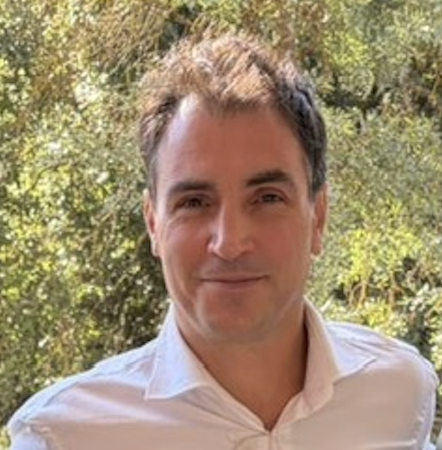
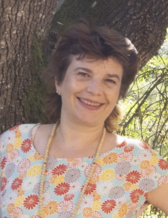
Dr. Nathalie Lazaric GREDEG
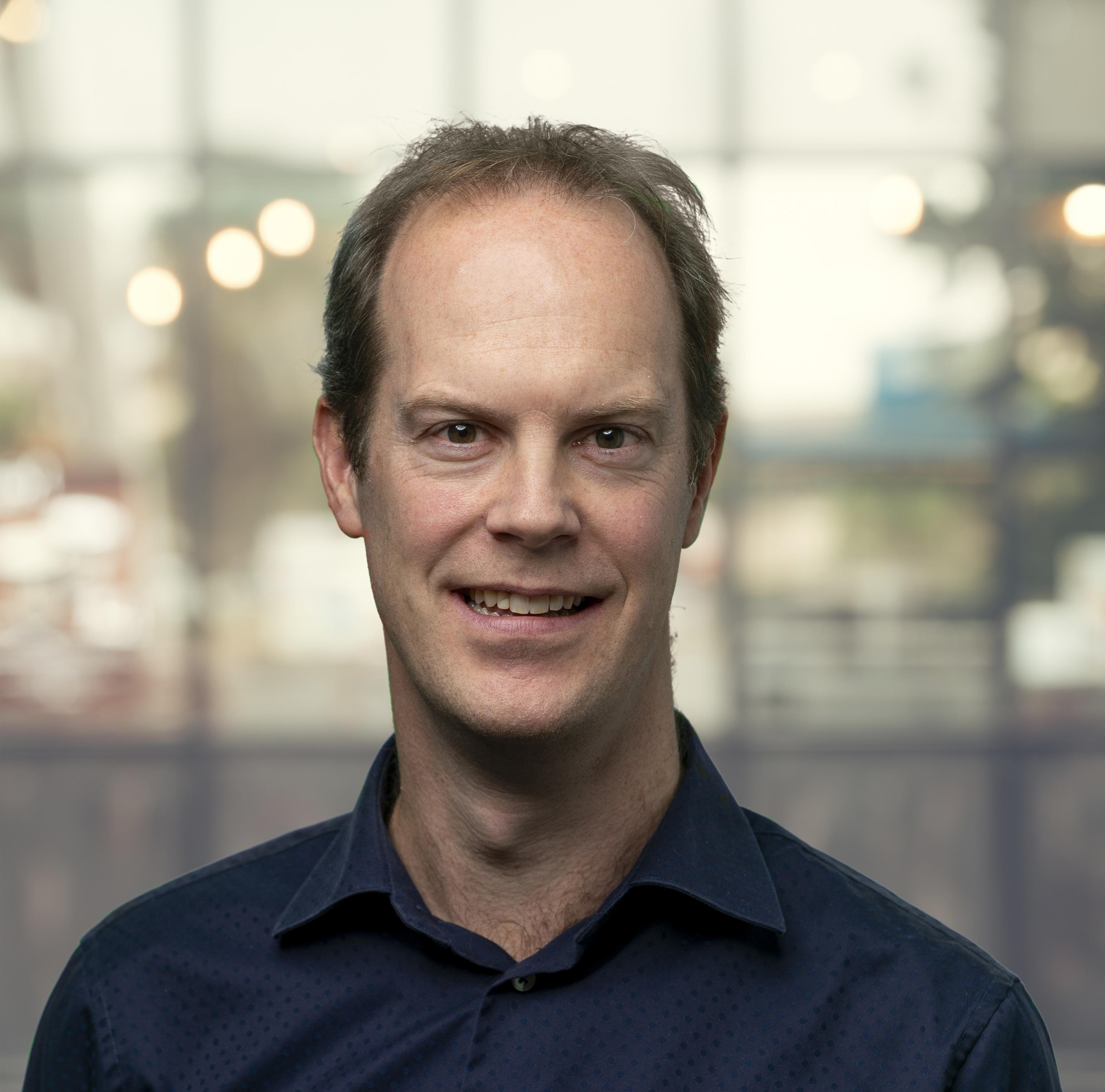
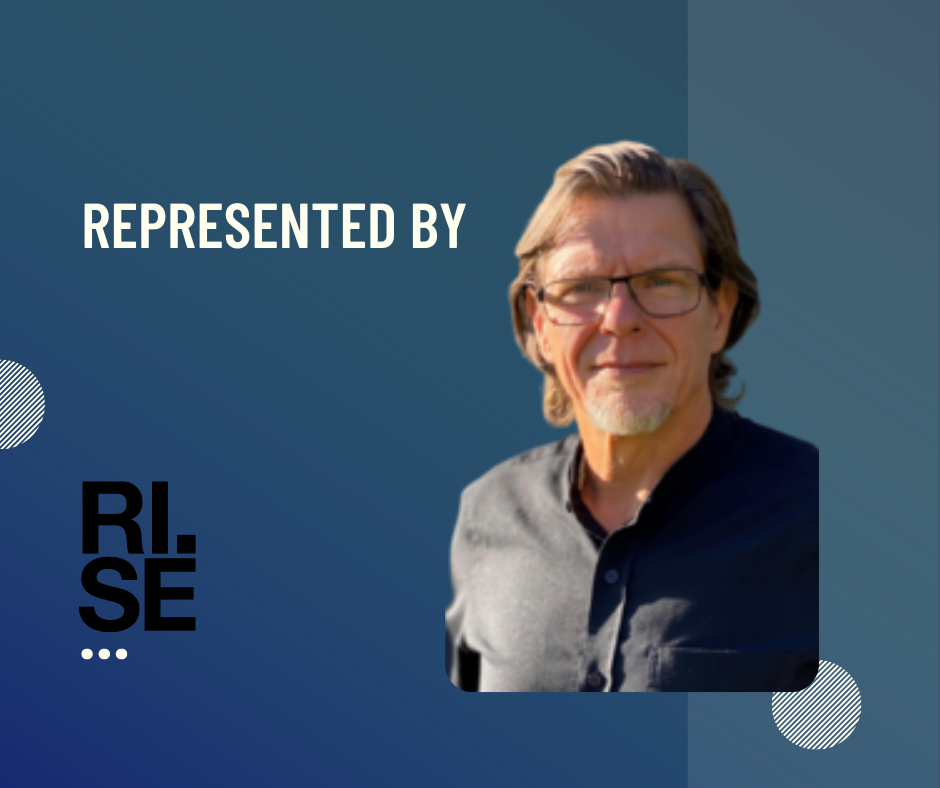
Raul Carlsson RISE
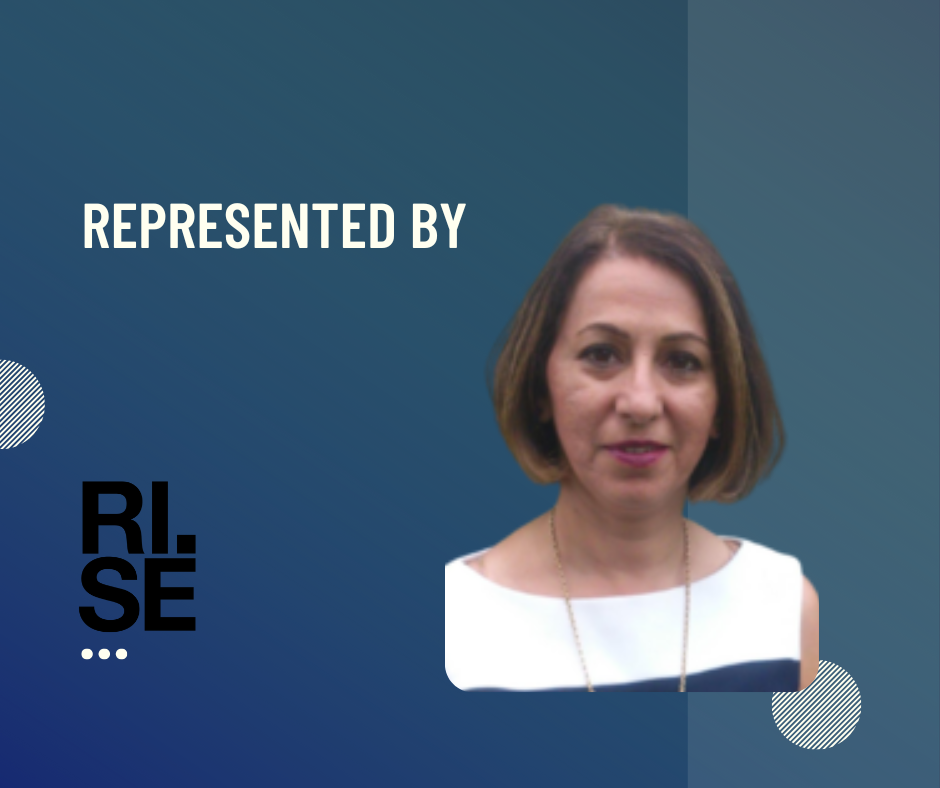
Dr. Nazdaneh Yarahmadi RISE
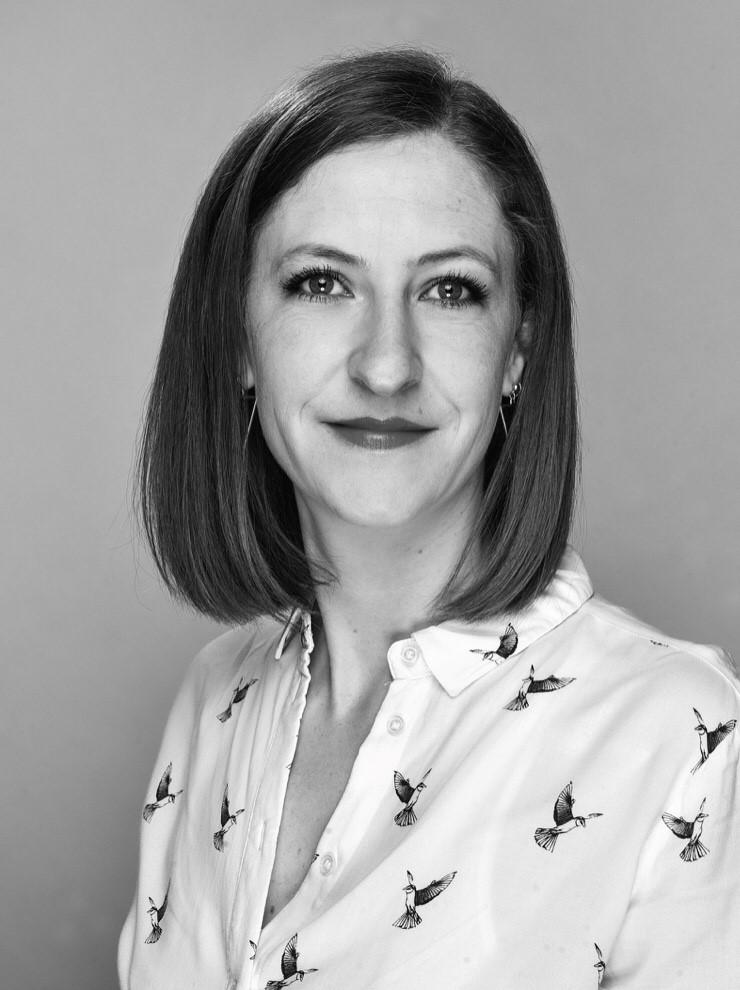
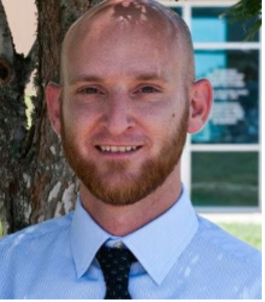
Clint Richards Prospex Institute
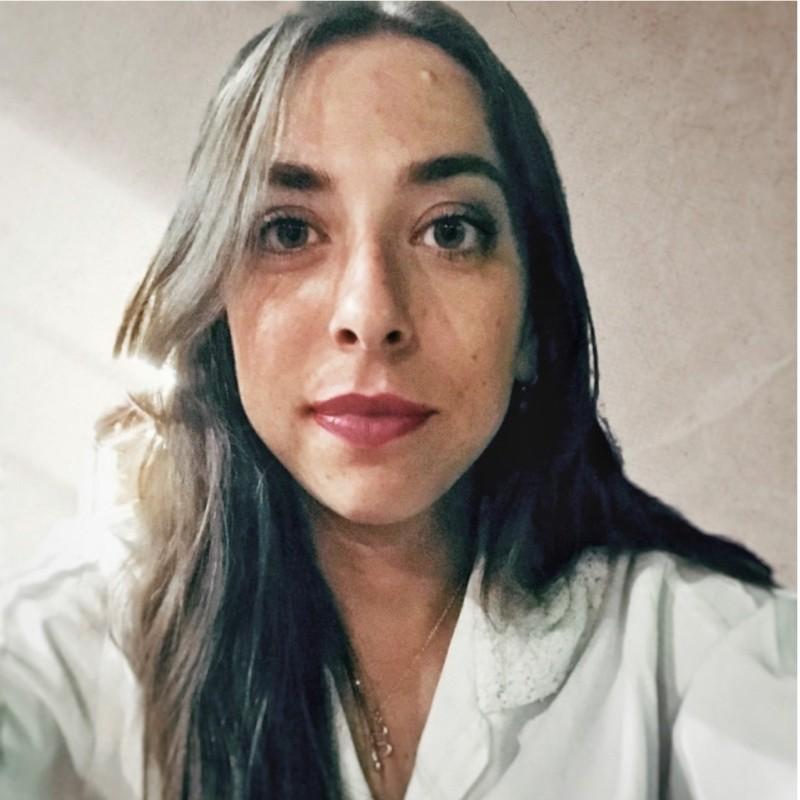
Gloria Marsano Prospex Institute
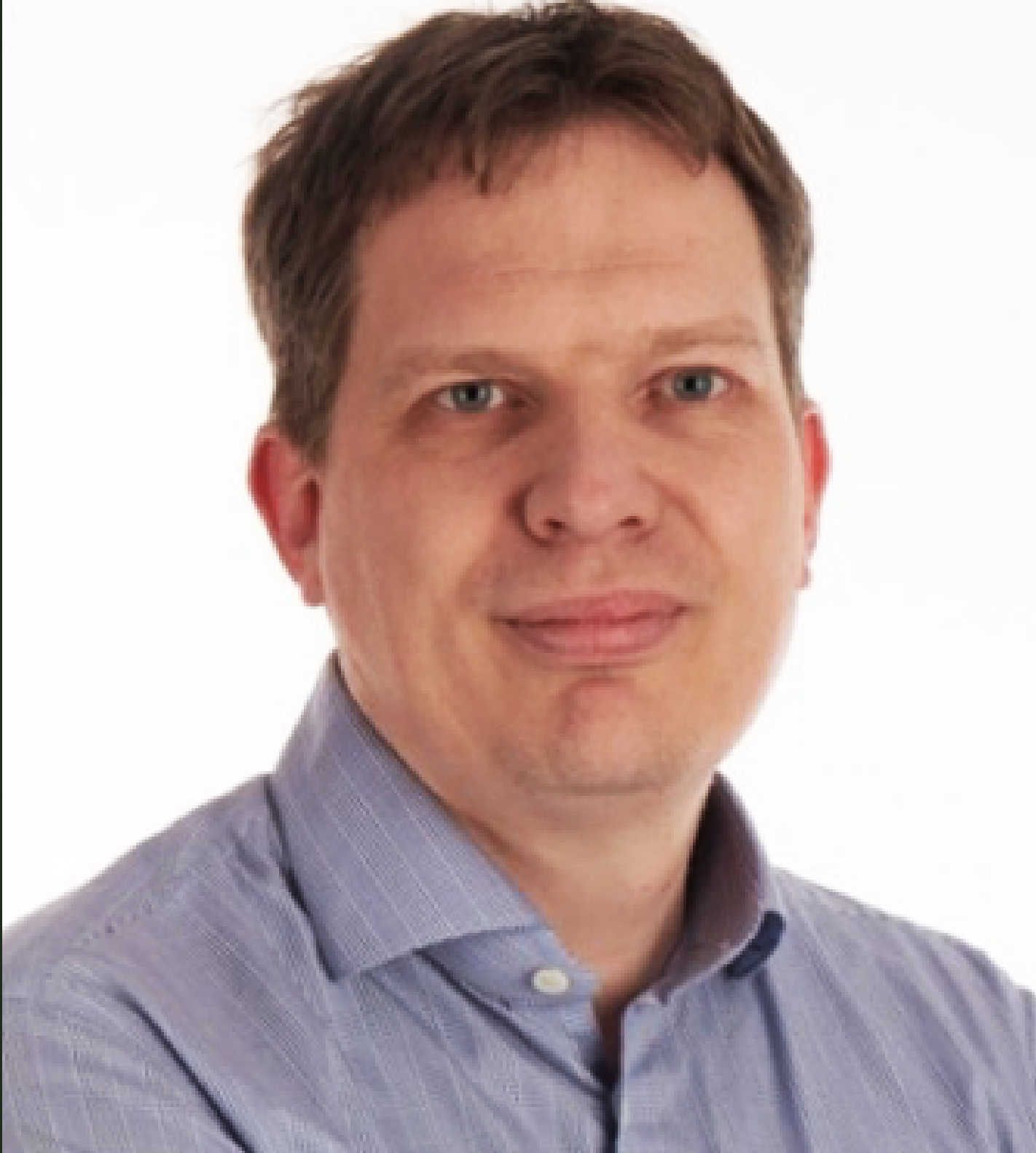
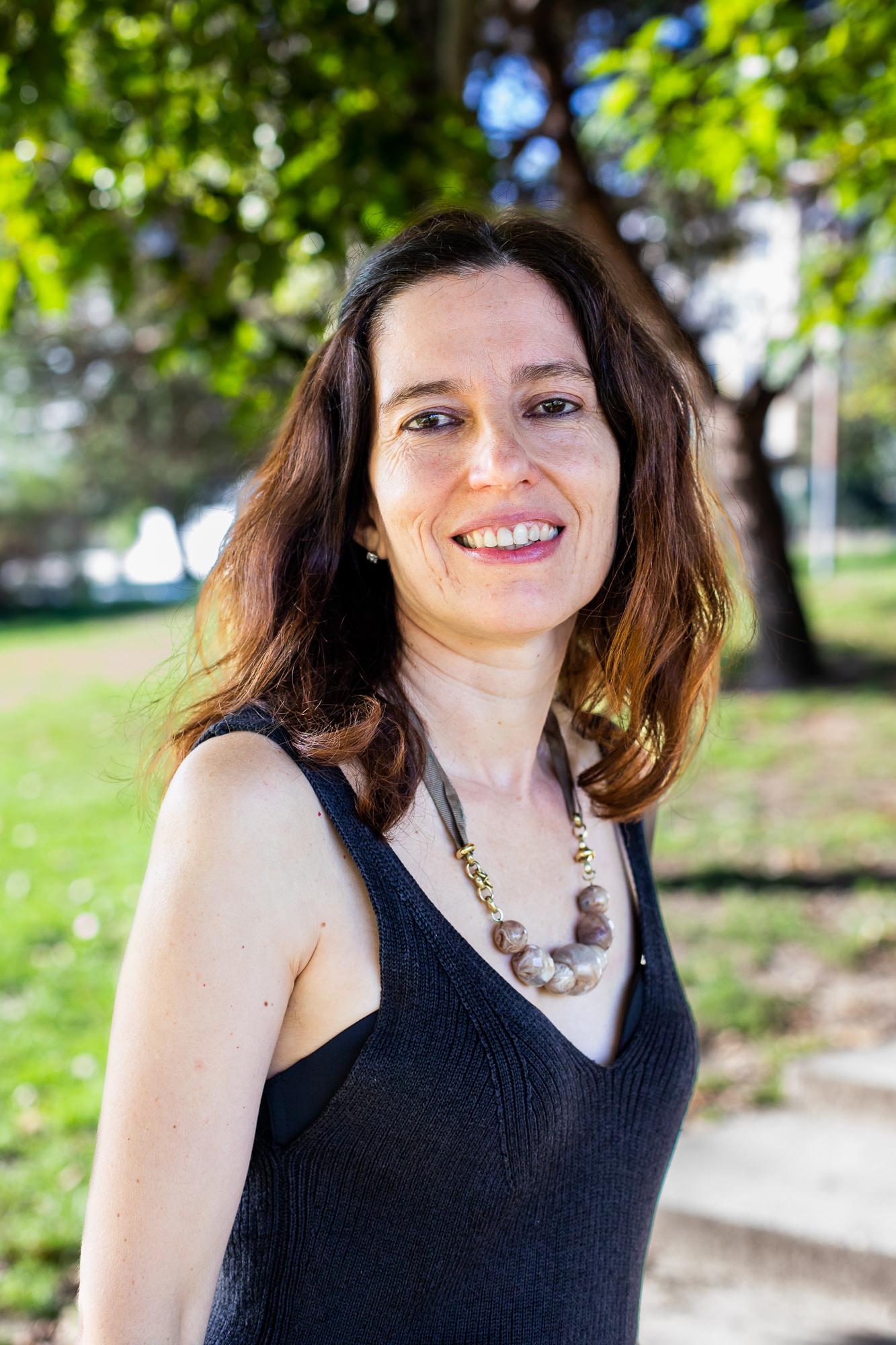
Andreia F. Sousa Universidade de Aveiro
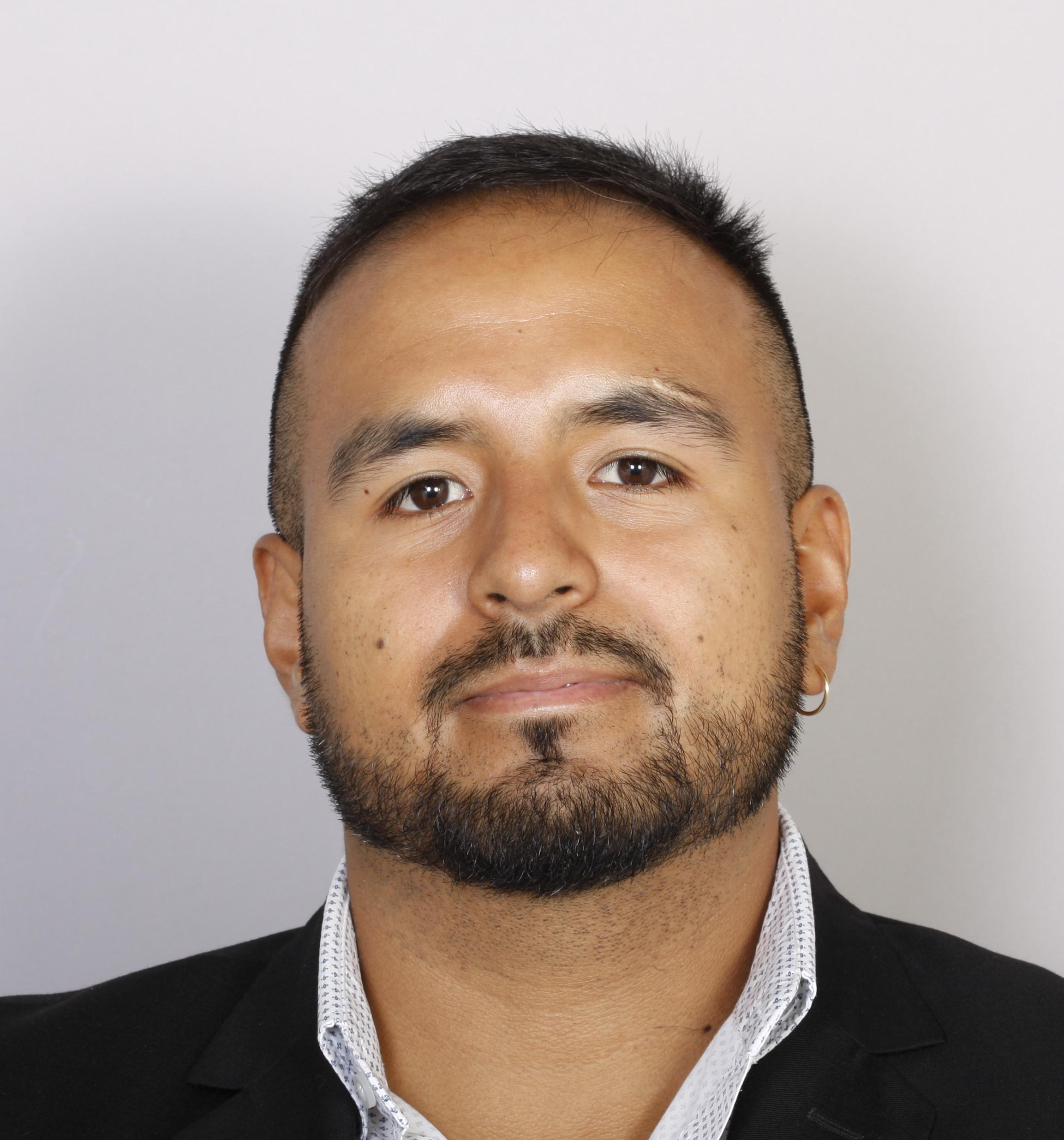
Mateo Gongora Torres TNO
